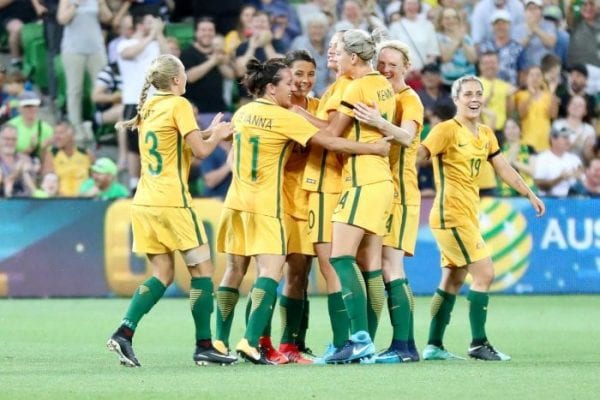But the beginning of 2019 has revealed the extent to which misogyny still plagues females in the male dominated world of sport. On and off the field.
On the 18th of January this year the Football Federation Australia sacked Alen Stajcic as head coach of the national women’s team, the Matildas, and the fall out has been spectacularly ugly.
It is five months out from the World Cup which is not typically the time national teams swap out their leader. The timing meant this dismissal was always going to be controversial.
When the chief executive of FFA, David Gallop, announced the decision to the media, just a few hours after informing the coach, it confirmed rumours that had been swirling since the day before.
“We no longer feel confident that Alen is the right person to lead the team and the staff,” Gallop said.
Details surrounding the shock decision have been relatively scant, most likely due to a combination of confidentiality clauses and a desire to avoid or minimise any potential legal action.
Gallop said ultimately the team culture had deteriorated to the point action was necessary. The results of two surveys, a confidential wellness audit and a gender equality culture survey, which highlighted various issues, were cited as part of the explanation.
Among the more alarming findings reported, a quarter of the players who responded reported feeling psychological distress and many were afraid to seek support, believing it would be held against them. Fewer than 20 per cent of the players said they felt the team environment was conducive to making them better players or people.
“It’s a misconception that the decision in relation to the head coach was solely based on surveys, it was based on a range of reasons and a range of information,” Gallop said.
“These matters are accumulative and there was a real view that things had deteriorated over a period of time … and that’s why the decision was taken.”
“Ultimately the board and FFA is defined by the standards that it sets and is prepared to uphold. Our guiding principal was what was in best interests of the sport as a whole,” FFA chairman Chris Nikou said. “We consulted widely in consultation with the management team and independent assessments. We felt that at this point in time, we thought to give the Matildas the best chance of success, we made the call to change tact.”
The lack of detail from FFA has led to calls for greater transparency but it has also left a void that has been filled, all too readily, with vile commentary ranging from homophobic to misogynistic and plenty in between.
Some trolls have been reported to police over vitriolic abuse of female footballers who have been targeted since Stajcic’s sacking.
But the curious theory that has gathered momentum since the decision was announced is that a select group of powerful women in football conspired to have the coach sacked. They are desperate, apparently, to have a female coach installed and set about undermining Stajcic to achieve their goal.
This group has been dubbed the ‘lesbian mafia’, a label that was apparently used within the team environment and has now been cited enough in the press to lend it a scintilla of credibility it does not deserve, which is illuminating in itself.
If, as it’s been reported, this term was bandied about regularly in a team of women including LGBTIQ players, it’s not difficult to imagine the team culture had its shortcomings.
Its use in the press is similarly alarming.
But leaving the blatant homophobia to the side, the idea that a group of troublemaking women call the shots in football to the extent that they could knock off a national coach is laughably implausible.
Women’s lack of power in football is historic and legendary. FIFA itself used these words to explain it:
Years of institutional neglect and a lack of investment have prevented girls and women from playing the game and from assuming roles in technical, administrative and governance functions. The long-standing lack of women in positions of responsibility in the football community means there have been limited voices to advocate for change. In 2016, the FIFA Congress made the first steps to rectify this problem by approving some landmark decisions for women’s football and the representation of women in football. Although these changes were momentous, the challenges ahead are still great, and we must continue to build on the momentum created.
FIFA’s Women’s Football Strategy will empower the organisation to take further concrete steps to address the historic shortfalls in resources and representation, while advocating for a global stand against gender discrimination through playing football.
And yet here in Australia we are expected to believe that a handful of women are so powerful and almighty and bent on causing trouble that when they deigned to bring down a national coach it happened?
The fact this story has been swallowed almost hook, line and sinker in the days and weeks since Gallop’s announcement is telling.
Information has been provided that there were cultural issues in the team: that it was a toxic and dysfunctional environment. Objective material in the form of findings from two separate surveys confirmed these allegations weren’t baseless.
Yet the narrative that prevails is not that, perhaps the reasons for the drastic action were warranted despite being divisive, but that it’s women who will stop at nothing to get a female coach, driving it.
The fact this implies having a female coach is somehow controversial ambition is one thing.
But it’s the fact that an illogical conspiracy theory trumps the reasonable conclusion that perhaps there were legitimate problem in the team that says everything about how far women have to go in sport. On the field and off.


